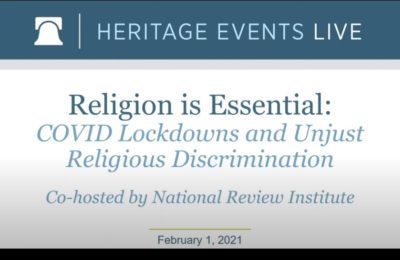Celiac Disease Does Not Mean “No Eucharist For You!”
July 20, 2017 | Published first in Aletia
Having 3 kids with celiac disease has taught us to be cautious, not panicky.
The shocking news recently broke: Pope Francis wants to poison my children.
According to numerous national and international outlets, Pope Francis had just issued a statement restricting the use of gluten-free communion hosts at Mass. “Vatican Outlaws Gluten Free Bread for Holy Communion!”screamed the BBC News. The Irish news outlet “Extra” lived up to its name, going one step further and reporting, “Celiacs will no longer be able to take the Body of Christ at Mass under new rules.”
The headline referred to a circular letter to bishops issued by the Congregation for Divine Worship and the Discipline of the Sacraments, ‘way back on June 15.
There’s nothing new contained in it – in fact, the opening paragraph notes that Pope Francis released the letter as a “reminder” that, as communion wafers and wine are no longer being exclusively distributed by Catholic religious communities, it is vital that bishops pay attention to where their Eucharistic materials were coming from. A little further down, the letter offers an additional reminder: “Hosts that are completely gluten-free are invalid matter for the celebration of the Eucharist. Low-gluten hosts (partially gluten-free) are valid matter, provided they contain a sufficient amount of gluten to obtain the confection of bread without the addition of foreign materials and without the use of procedures that would alter the nature of bread.”
Vatican radio reported on the release of the reminder in a rather routine way on August 7. Nothing gets people going like the Catholic Church telling them they can’t have something: BANNED! FORBIDDEN! DECLARED ILLICIT!
Facebook and Twitter predictably exploded with some of the most anti-Catholic bigotry I’ve seen in some time. “This is the reason why my daughter…didn’t feel welcome in the Catholic Church so we had to make a switch,” wrote one mother, sharing that her daughter had told her “God created me the way I am and for me not to be welcomed in this church isn’t fair!”
“This is just plain stupid,” read a fuming Facebook post. “Millions of Catholics have celiac disease ‘but go ahead and poison them blindly!’”
Hysteria aside, celiac disease is serious business. Also known as celiac-sprue disease, it is not an “allergy” or “intolerance” to gluten; it is a genetic, autoimmune disorder triggered by the consumption of gluten. If a person with celiac disease accidentally ingests even a small amount, it can cause illness – headaches, stomachaches, cold sweats, gastrointestinal symptoms – that can last for days. There is no cure for celiac disease, but those who have it can minimize the symptoms by eating a strictly gluten-free diet. If you are a parent of a child with celiac disease, you are hyper-vigilant; you often need to go to great lengths to make certain your child isn’t accidentally “glutenzied,” whether while visiting a friend’s house or attending Mass.
As a Catholic mom raising three children with celiac disease, I know this all too well. To see a celiac patient suffer after ingesting gluten makes it easy to understand why some people were so triggered by those misleading, sensationalized, (yes, fake) headlines, because it’s truly awful.
We had already discussed how to safely receive the Eucharist with our (also Catholic) pediatric gastroenterologist. The Church’s Eucharistic discipline requires that the hosts used for communion be made of wheat. Creating a host that met this requirement but with a safe level of gluten was a challenge, but a number of low-gluten options are now available. The best-known is made by the Benedictine Sisters of Clyde, MO. According to their website, “Dr. Alessio Fasano, director of the Center for Celiac Research at the University of Maryland, [tested and] maintained that the amount of gluten contained in one of the Benedictine Sisters’ low-gluten altar breads (< .01 percent) was so minute that someone diagnosed with Celiac Sprue Disease would have to consume 270 wafers daily in order to reach the danger point.”
So, it’s not the low-gluten host that is the problem. The greatest danger for my children, or any celiac, is the risk of cross-contamination. Because gluten is “sticky,” it easily adheres to the fingers of the minister who touches a regular host, then the low-gluten host. “Your children can pick up more gluten from the fingers of a minister who hasn’t cleaned their hands than they will from the specially-made hosts, which have an extremely low gluten level,” our doctor warned.
A second danger comes from the people who declare that because the Eucharistic Host is the Real Flesh of Christ, celiacs should be safe to consume any Host because “If you really believe in the Real Presence, then the gluten can’t hurt you.” People with celiac disease have enough to deal with without being tempted (or shamed) into consuming a full-gluten Host to prove their faith.
Each of my children deals differently with their disease in the practice of their faith. My eldest daughter was accidentally given a “regular” Host by a distracted Eucharistic Minister and as a result became so sick she didn’t leave her bed for 24 hours. She attends Mass each Sunday, but rarely receives, unless she is absolutely certain that there is no risk of cross-contamination.
The Church can better address this issue with more consistent treatment of parishioners with celiac disease. Our experiences have varied wildly depending on where we go to Mass. Some parishes have a dedicated chalice just for those with celiac disease. Other parishes don’t even keep low-gluten hosts on hand. Some Eucharistic Ministers are carefully trained in the proper handling of low-gluten hosts; many are not. Some parishes store the hosts properly (in an air tight container, in the freezer) but some do not.
A common complaint among people with celiac disease is that so little is understood about it, it often goes undiagnosed and it’s difficult to try to draw widespread attention to how serious it is for a person who is afflicted with it. So, while this week’s headlines may have been ignorant, or biased, or even malicious, they’ve served a helpful purpose: in recent days I’ve had more conversations this week with priests, Extraordinary Ministers of the Eucharist and others about celiac disease and cross-contamination than in the previous six months.
God, as usual makes all things work together for the good.



